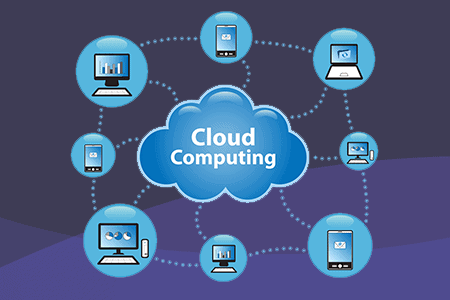Cloud technology is fantastic for storing files for easy access in the short-term, for long-term storage and backups, for sharing files with people easily, and a lot more. It’s the easiest and most convenient way to share and store files, and very cost-effective to boot. Despite the benefits, some people are still a bit skittish when it comes to trusting their data on the cloud.
For starters, the big celebrity leaks certainly haven’t helped instill any confidence among regular users, but the truth is that we’re talking about services that have millions upon millions of active users. Every celebrity has a huge target on them, and oftentimes these leaks happen due to social engineering, where the would-be hackers call up phone companies and clone SIM cards to gain access, rather than actually hacking into the clouds themselves. These are all things to keep in mind.
[displayAd]
Does that mean the cloud is 100% safe and secure for the average user? No, but it’s still safer than the alternatives, for a few reasons. Nothing is ever really 100% secure, but it can get extremely close when you’ve covered all your bases. There’s always the possibility of your data being stolen or otherwise compromised, but that risk exists if you keep it sitting on your desktop, too.
The Risks of Cloud Storage & Cloud Hosting
One of the big fears about distributed cloud technology is the fact that your data isn’t stored on one single server, but rather spread out among many servers. The fear here is that if any one of those individual servers in the cloud gets hacked, your data is at risk.
In reality, however, having little bits and pieces of your data all over the place actually makes it safer, since someone would need to get access to all of the individual pieces. This protects from certain types of attacks and intrusions, but not others. In the big picture, it’s nothing to worry about. In fact, it’s a layer of protection.

Other risks are things that exist in all technology. Servers can get hacked. People can be manipulated. Data can get stolen by intercepting wifi signals. It’s big news whenever a giant bank gets hacked, or any other huge data breach, so it’s naive to think that can’t happen to your cloud data, backups, and stored files. If something absolutely needs to be kept private, you shouldn’t even have it on your computer. It should stay on a thumb drive stored in a secure location, or another form of off-line backup.
Keeping Your Data Secure In The Cloud
Understanding the potential entry points into your cloud server, how your data could be accessed, and taking steps to reinforce those weak points are how you’ll make your data as safe as possible. You, personally, don’t need to do any of this. The best cloud hosting providers are already on the case, constantly monitoring activity and fortifying their defenses. But there are ways you, yourself, can expose your cloud data to bad actors.
We’ve already quickly talked about how hacking can happen when someone calls up your cellphone provider and tricks them into cloning your phone. There’s not a whole lot you can do about this. You can call up your phone company if you think you’re at risk, and get them to leave a note to exercise extra security precautions, but clever social manipulators will often still find a way in.
[displayAd]
There’s also the most common way someone could gain access, and that’s by first gaining access to your computer itself. If they’re sitting at your desk, or connected remotely, all of your files will be sitting right there. The same goes if you fall for a phishing scam, a fake log-in screen, or end up with a key-logger installed on your machine… There’s not much any security can do to protect you when you’re voluntarily telling people the passwords to your cloud account.
Updating your passwords to keep them new, unique, and intricate is one of the best things you can do on your end. Two Factor Authentication is also great, but make sure that you understand how it works first, because you don’t want to end up locking yourself out. A huge tactic is simply to never use the same password more than once. If you sign up for a forum and their database gets hacked, and you’ve used the same login name and password combination everywhere, then you’re in big trouble. But if you used a different password each time, there’s no problem.
If the intrusion comes from somebody breaking into the cloud provider themselves, then a lot of their client’s data could be at risk. This is rare, especially when dealing with large and reputable providers, but it can still happen. In cases like this, and even in every other example outlined above, you can encrypt your data if it’s super private. This way, even if someone manages to break into the cloud and steals your data, they’ll still need to decrypt it, which just isn’t a feasible task when using modern encryption methods.
So, Is The Cloud Secure?
The short answer is yes, your data is safe in the cloud, especially with the best cloud storage providers. If you follow all of the basic guidelines for keeping yourself and your accounts safe online, and you aren’t careless with your passwords, and you actually take the time to go out of your way and update them, it’s very unlikely that anything will ever happen.
If even the tiniest remote possibility of your data being leaked is troubling, don’t put that data on your computer in the first place – keep it offline. For most of us, the convenience of the cloud is well worth the risk, since our files are vacation photos, papers for work for school, spreadsheets, and the like. Most of our data poses no privacy problems, anyways.
If you’re a public figure, or have valuable trade secrets on your devices, or could be a target for hacking for any other reasons, exercise extra caution and remember the golden rule… If you don’t want anyone to see it, keep it off the internet.
[displayAd]
If the low, low chance of having a security issue is still worth it for you, and it would be annoying but not catastrophic for your data to be breached, then just be mindful of what you’re storing on the cloud and take the necessary steps to protect yourself.
The cloud is a lot more secure than most people realize, but there are still valid concerns about how safe it is. Considering how widely used cloud technology is in modern computing, if it was as dangerous as some people seem to think based on media coverage of celebrity leaks, we would have bigger things to worry about than losing some family photos or old projects.
Obviously, it’s not perfect, but the typical user has nothing to really worry about.
